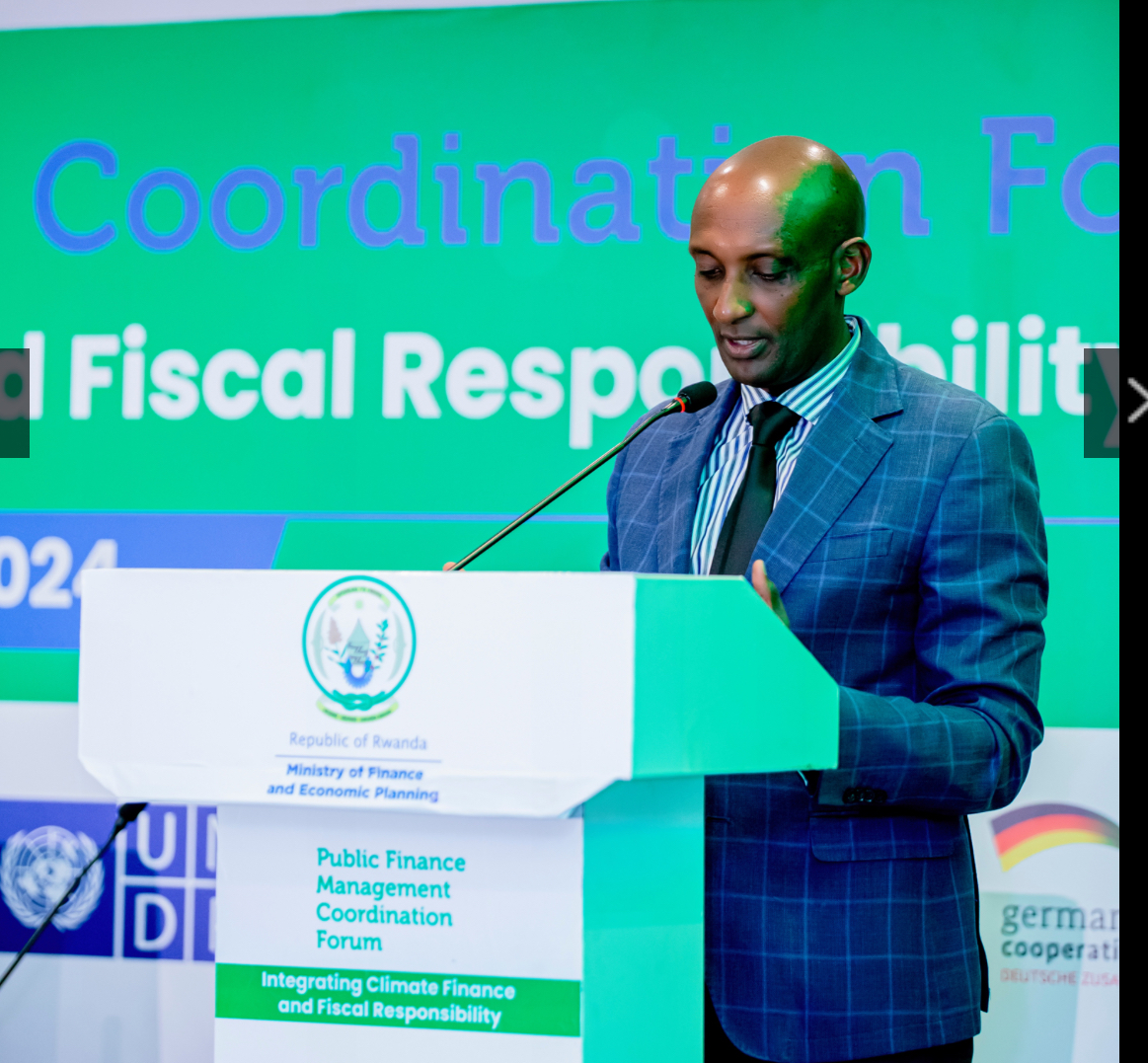Rwanda has identified a need for US$6.2 billion in climate finance to meet its Nationally Determined Contributions (NDCs) under the Paris Agreement between 2020 and 2030. Additionally, the country requires US$107.7 million to achieve its biodiversity goals, reflecting the significant financial challenges it faces in addressing climate change and environmental preservation.
To address these challenges, the Ministry of Finance and Economic Planning, in collaboration with development partners, the private sector, and civil society organizations, convened the Public Finance Management Coordination Forum. The event focused on integrating climate finance into Rwanda’s fiscal policies, emphasizing both the importance of mobilizing resources for climate resilience and maintaining fiscal responsibility.
Rwanda is implementing the Climate and Nature Finance Strategy, which aims to mobilize financial resources for climate change adaptation and biodiversity conservation while promoting sustainable development that benefits both people and the environment.
Richard Tusabe, the Minister of State for National Treasury, highlighted the balance between scaling climate finance and upholding fiscal discipline. “Rwanda’s strong governance framework and commitment to transparency guide its financial decisions, ensuring that resources are effectively allocated to achieve both climate and economic objectives,” he said.
Laurent Preud’homme, Chargé d’affaires and Head of Cooperation at the Belgian Embassy in Rwanda and co-chair of the Public Finance Management (PFM) sector Coordination Forum, emphasized the need for building Rwanda’s capacity to adapt to climate risks. “It is crucial to enhance the Government of Rwanda’s ability to finance its adaptation to increasingly severe climate risks and improve efficient local service delivery,” he stated, referring to the country’s second National Strategy for Transformation.
The Public Finance Management Coordination Forum serves as an essential platform for fostering collaboration between government officials, development partners, and the private sector, aiming to strengthen Rwanda’s fiscal policies and build a resilient future for the nation.




















